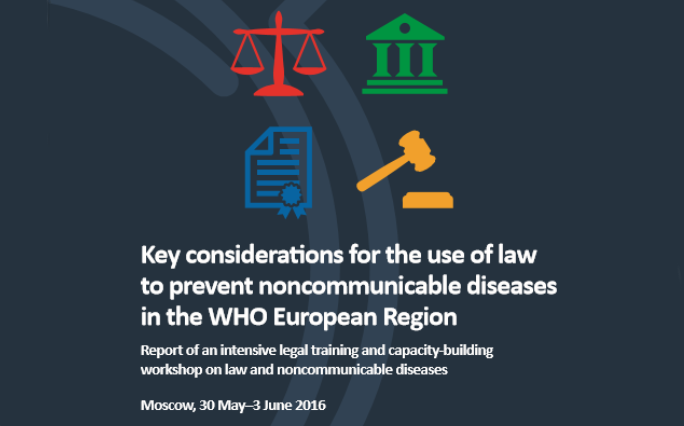
Professor Amandine Garde and Dr Mavluda Sattorova from the School of Law and Social Justice participated in an intensive legal training and capacity-building workshop on law and non-communicable diseases in Moscow from 30 May–3 June 2016. This workshop was organised by the Regional Office for Europe of the World Health Organization with the McCabe Centre for Law and Cancer, the I.M. Sechenov First Moscow State Medical University and the Law & NCD Unit at the University of Liverpool. It was designed for public health policy-makers, government lawyers and representatives of trade and/or the economy. The WHO Regional Office for Europe has just published the workshop report. The report summarises important issues discussed during the meeting in Moscow, ranging from the design and implementation of legislation, how to reconcile public health objectives with international trade and investment law, to examples of regional integration, such as the European Union and the Eurasian Economic Union. It is available at: http://www.euro.who.int/en/health-topics/disease-prevention/tobacco/publications/2017/key-considerations-for-the-use-of-law-to-prevent-noncommunicable-diseases-in-the-who-european-region-2017
The Law & NCD Unit was set up in January 2015 to conduct research into how legal instruments can be used as tools for the prevention of non-communicable diseases and more specifically on how effective, evidence-based policy interventions can be designed to control them. The Unit comprises legal academics who collectively specialise in a wide range of sub-disciplines, including international human rights and children’s rights, public health, trade and investment, consumer, food and advertising law. We adopt a multidisciplinary, multi-partner approach to our work, and have worked closely with a broad range of international organisations, governments and non-governmental organizations. For example, in 2015, we developed a training package for the WHO on the regulation of unhealthy food marketing to children https://www.liverpool.ac.uk/law/news/articles/pioneering-who-course-to-cut-childhood-obesity-developed-by-liverpool-law-school/ . However, in order to maintain the rigorous and independent academic approach that defines our work, we have a strict policy against conflicts of interests, and accept no funding from the tobacco, the alcohol and the food industries.
Professor Amandine Garde
Director, Law & Non-Communicable Diseases Unit School of Law and Social Justice University of Liverpool